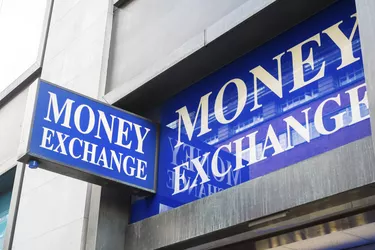
Foreign exchange currency trading, also known as forex trading (FX), has become a popular investment choice. Unlike stocks, bonds or commodities, forex trading does not require an extensive education in individual businesses, specific industries or government regulations. However, it carries several disadvantages that can cause inexperienced traders to lose their money. Even well-schooled forex traders can suffer from the pitfalls of the unpredictable currency market. While the stock market can be tricky to time, the forex market can be even more challenging, as there are many variables involved in determining value.
High Leverage and Investing
Video of the Day
Leverage means that investors can multiply their purchasing power through credit extended by their brokers. The increase in purchasing power allows the forex investor to make a substantial profit with very little cash in a brokerage account. This sounds good but it is actually one of the disadvantages of forex trading because it carries a corresponding increase in risk. Traders who use high leverage, as high as 500 to 1 in some cases, can wipe out an account balance with one bad trade. This can result in significant debt burdens, which risk assets in the investor's personal life.
Video of the Day
Regulation: Disadvantages of Forex Market
While stock trades are regulated by various stock exchanges and government agencies, the forex market has very little regulation, thereby increasing risk to investors. Government agencies in one country lack jurisdiction to enforce their regulations in another. Also, the lack of regulation leaves investors vulnerable to unethical brokers who may make trades against the wishes or best interests of their clients, leaving investors with no real recourse. When these brokers are caught making unethical trades, they rarely suffer severe punishment due to the lack of an enforcement agency. Because of this, investors are sometimes left high and dry, with few options to address unethical practices.
High Volatility and Forex Trading
Forex trading carries a degree of volatility that makes the most active stock market appear glacial by comparison. Market forces, central bank policies and economic catastrophes can cause huge swings in currency markets. Even the most experienced and successful forex traders might think that a particular currency is steady or headed up, but then world events cause it to crash instead, causing financial devastation for some. According to Investopedia, as of 2019, nearly $6.6 trillion trades hands in forex markets every day, so a small ripple in one or more currencies can cause a tidal wave of buying and selling. Accounts of investors who are over-leveraged or under-educated in forex markets can take devastating hits.
Investing in a 24/7 Market
Forex.com reports that the markets have no closing bells or holiday breaks. Traders must be prepared for a 24/7/365 market. Forex traders on one side of the world can make and lose fortunes while they sleep, as traders on the other side of the globe attempt to improve their positions. The efforts of following the constant fluctuations of exchange rates, combined with the volatile nature of currency trading, can be a mentally exhausting exercise.
Consider Also: How to Become a Millionaire with FOREX, and How to Invest in Foreign Currencies